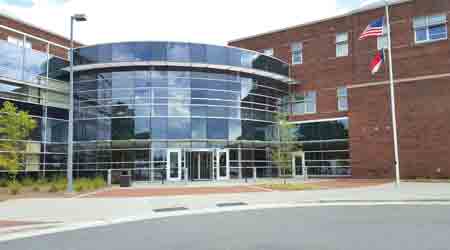2015 FMD Achievement Awards: Financial Management
Recipients: Frito-Lay Facilities, Plano, Texas; Winston-Salem/Forsyth County (N.C.) Schools
By Dave Lubach, Associate Editor
Frito-Lay Facilities, Plano, Texas

The Achievement: Invested in HVAC and lighting systems and data center upgrades to help reduce energy use by 2 million kilowatts annually, saving $1.5 million per year
 The Benefits: The biggest benefits and results of our projects are the improved operations of our campus buildings and reductions in our overall operating expenses. Our projects also have delivered continuous improvements in our day-to-day operations and significantly increased our team’s value-added capabilities to our company.
The Benefits: The biggest benefits and results of our projects are the improved operations of our campus buildings and reductions in our overall operating expenses. Our projects also have delivered continuous improvements in our day-to-day operations and significantly increased our team’s value-added capabilities to our company.
We have received recognitions both internally and externally, and with the recent Facility Maintenance Decisions Achievement Award, it validates that we are doing it the right way and delivering sustainability for our campus well into the future.
— George Guck, Director of Facilities
Winston-Salem/Forsyth County (N.C.) Schools

The Achievement: Used more than $300,000 in utility incentives to upgrade lighting systems and HVAC equipment and install low-flow plumbing fixtures
 The Benefits: The biggest benefit has been a sense of pride, ownership and satisfaction knowing we have accomplished major facility improvements while maximizing our resources and contributing to a greener environment. Our students and staff will benefit from these improvements for many years.
The Benefits: The biggest benefit has been a sense of pride, ownership and satisfaction knowing we have accomplished major facility improvements while maximizing our resources and contributing to a greener environment. Our students and staff will benefit from these improvements for many years.
The use of energy-efficient equipment helped the school district improve its bottom line by reducing energy consumption, and Smart Saver incentives helped lower the costs associated with the upgrades. Another bonus was contributing to a greener environment by reducing the amount of natural resources needed to keep our facilities running.
To date, we have received more than $314,000 in incentive dollars, which have been reinvested into more energy saving projects throughout the district. These projects have resulted in a reduction of more than 1 million kilowatt-hours of electricity, along with significant water, sewer and natural gas reductions. We also reduced our carbon footprint by 962 metric tons of carbon dioxide.
— Howard Moore, Energy Manager
Related Topics:









 The Benefits:
The Benefits: 
 The Benefits: The biggest benefit has been a sense of pride, ownership and satisfaction knowing we have accomplished major facility improvements while maximizing our resources and contributing to a greener environment.
The Benefits: The biggest benefit has been a sense of pride, ownership and satisfaction knowing we have accomplished major facility improvements while maximizing our resources and contributing to a greener environment. 


